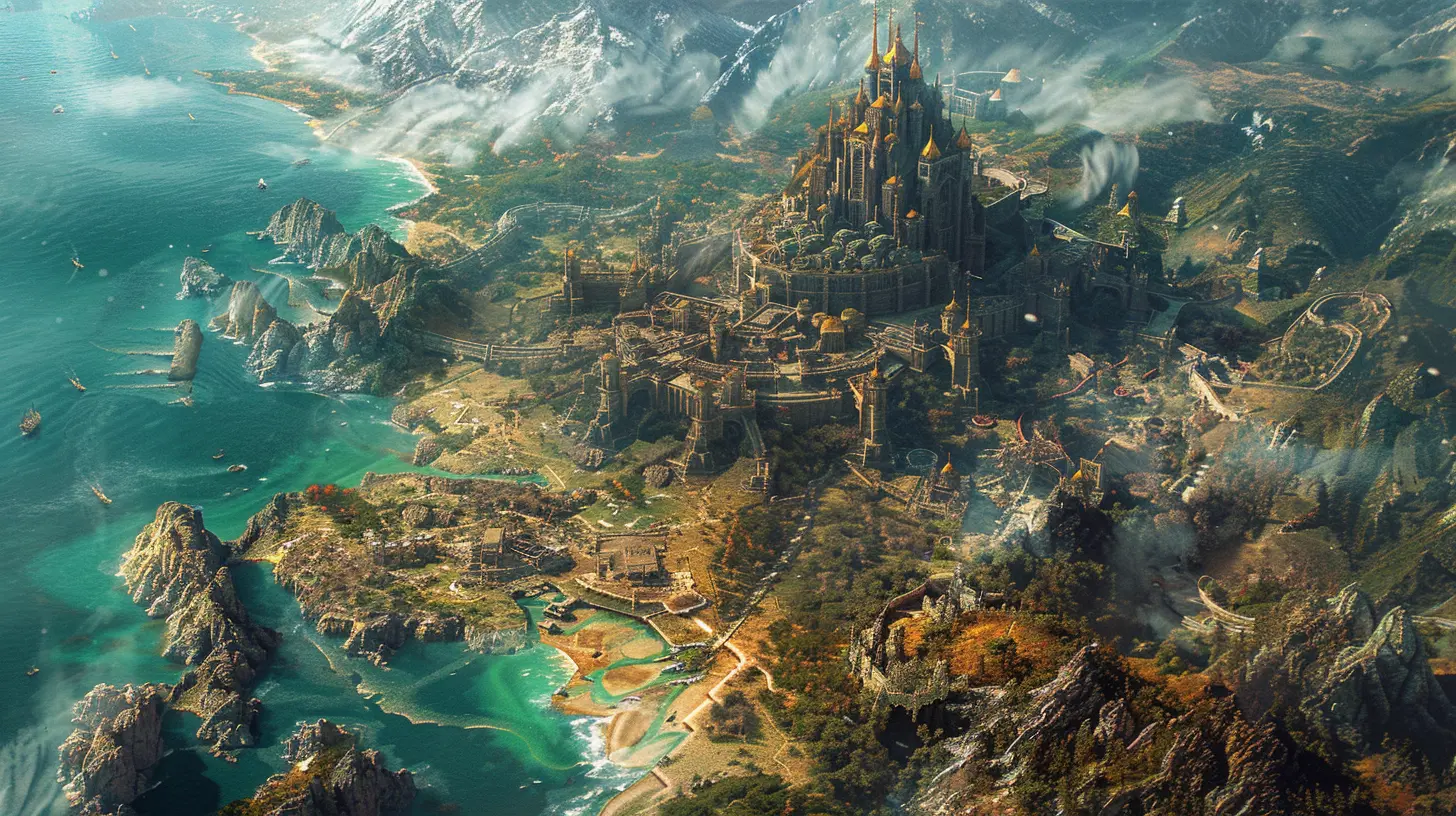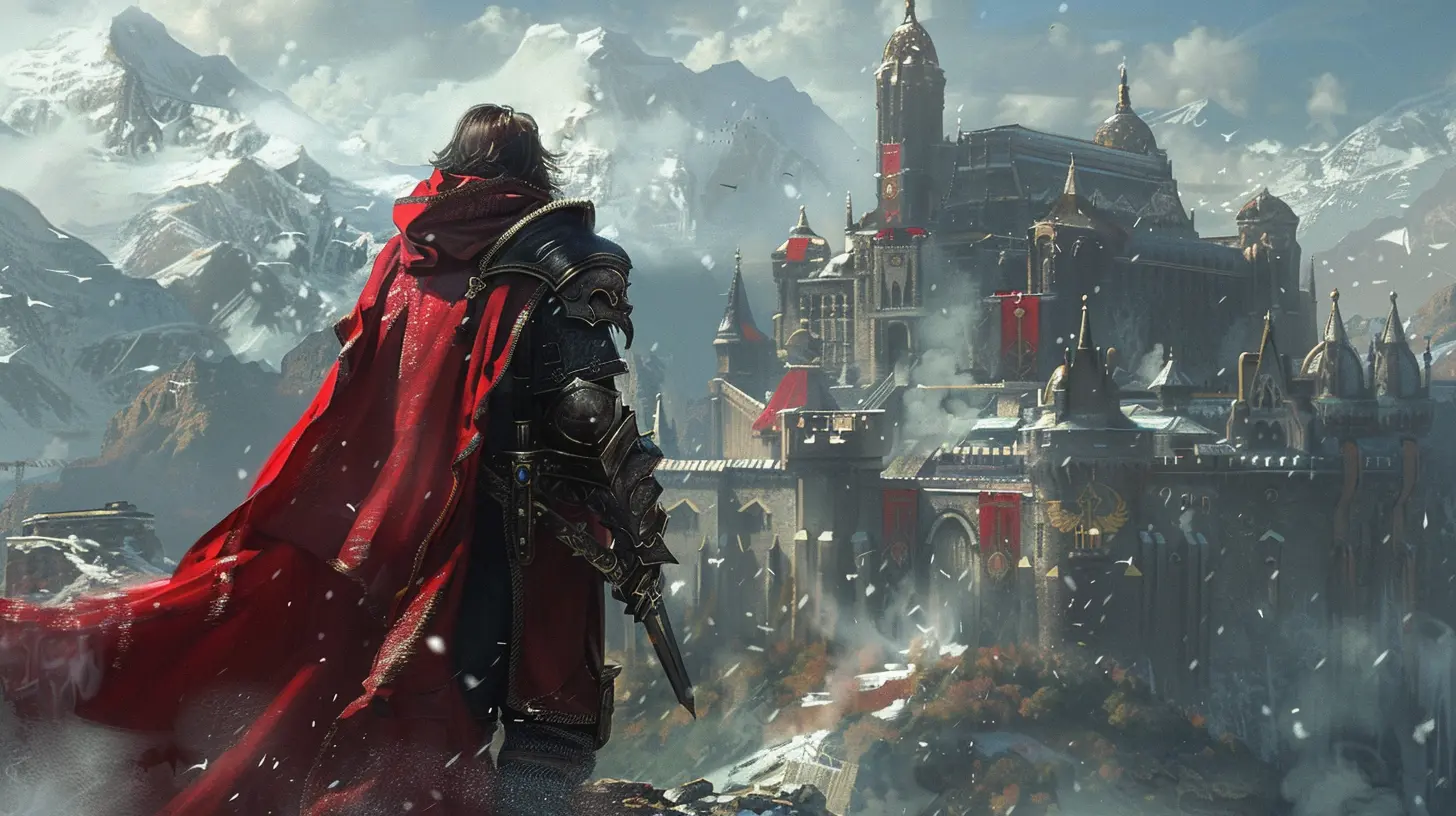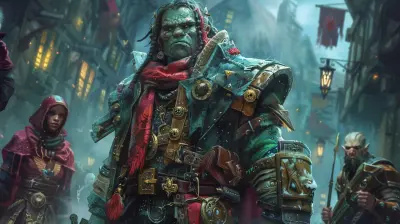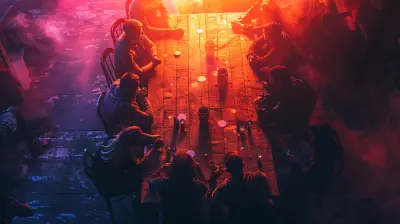Exploring Territories and Politics in Strategy-Based MMOs
6 July 2025
Let’s face it – when we think of most video games, we think about blasting through levels, gathering loot, or maybe even just casually wandering through a beautifully crafted world. But if you’ve ever dived into strategy-based MMOs, you know there’s a whole other layer of complexity waiting to suck you in. Here, it’s not just about defeating enemies or amassing riches—it's about outsmarting your opponents, building alliances, and mastering the delicate dance of territorial control and political intrigue.
In this article, we’ll peel back the layers on one of the most fascinating aspects of strategy-based MMOs: territories and politics. Whether you’re a seasoned pro or someone peeking into this genre for the first time, buckle up. It’s about to get real.
What Makes Territories So Important in Strategy-Based MMOs?
Alright, let’s start with the basics. Territories in MMOs are like prime real estate. Think of them as the beachfront property of the game world. These areas aren’t just pretty to look at—they’re often rich in valuable resources, provide key strategic advantages, and let’s not forget, owning one comes with serious bragging rights.In most strategy-based MMOs, controlling a territory means you’ve got access to rare materials, bonus perks, and possibly even tax revenue from other players using that area (yep, you basically become a landlord). It doesn’t stop there. Territories often provide a safe haven for your guild or faction to regroup, plan strategies, or just flex your dominance. But here’s the catch – everyone else in the game wants that same piece of land, and they’re willing to do whatever it takes to get it.
The Dance of Diplomacy: Politics and Power Plays
You’d think claiming a piece of territory is all about brute force, right? Wrong! Sure, having a mountain of siege weapons and an army of loyal guildmates helps, but strategy-based MMOs are called “strategy-based” for a reason. The real game often lies in the politics.Politics in MMOs is where things get juicy. It’s not just about fighting enemies—it’s about forming alliances, negotiating treaties, and sometimes stabbing your "friends" in the back when the time is right. (Don’t act shocked; we’ve all considered it.) If you enjoy the power plays of "Game of Thrones," then you’ll feel right at home.
Here’s how politics typically works:
1. Alliances and Treaties: Guilds or player factions often band together to form alliances. Think of it as “you scratch my back, I’ll scratch yours.” You protect their territory; they protect yours. Sounds simple, right? It’s not. These alliances can crumble faster than a sandcastle at high tide if there’s a hint of betrayal.
2. Espionage: Where there’s power, there’s also intrigue. Many players use spies to infiltrate rival guilds and feed intel back to their leaders. It’s shady, but hey, all’s fair in love and virtual warfare.
3. Diplomatic Persuasion: Sometimes, diplomacy can be more effective than warfare. Negotiating with neighboring factions to leave your territory alone or join forces against a stronger rival can save resources and lives (well, virtual lives, but you get the point).
4. Propaganda: Some guilds even use public messages, forums, or in-game chats to spread misinformation or rally players to their cause. It’s less about swords and more about words.
The Thrill of Conquering Territory
Let me paint you a picture. Your guild’s been strategizing for weeks. Every member knows their role, communication is sharp, and the enemy is completely unaware of your plans. Then, the day comes. You march your forces into battle to claim that coveted territory!The adrenaline rush when you see your team’s banner raised in victory is unmatched. But obtaining a territory is just the beginning. The real headache is holding onto it. Other players will come for it—guaranteed. It’s like putting a neon sign above your guild saying, “Hey, come fight us!”
Territorial Warfare: When Strategy Meets Chaos
War in strategy-based MMOs isn’t like a mindless free-for-all. It’s calculated chaos. You’ve got to manage troops, resources, and tactics while watching your enemies’ moves like a hawk.Strategies often include:
- Zerging: This is the MMO equivalent of mob mentality. You throw an overwhelming number of players at your enemies, hoping to drown them in sheer numbers. While effective, it’s not always the smartest choice, as it can backfire if you lack coordination.
- Flanking Maneuvers: Attacking head-on is too predictable, right? Experienced MMO players know to hit enemy forces from the sides or even ambush them from behind.
- Resource Control: Wars aren’t just about fighting; they’re about logistics. Cutting off your enemy’s supply lines can cripple their ability to fight back in the long run.
- Defensive Strongholds: Sometimes, holding your fort is more important than smashing through your opponent’s defenses. Placing archers on walls or setting traps can turn the tide of battle.
How Players Shape In-Game Politics
The beauty of MMOs is that they’re living, breathing worlds shaped by players. Developers may create the framework, but it’s the gamers who build the story. Alliances form, empires rise, and rivalries brew—all because of player-driven politics.For example:
- A small guild might unite under a charismatic leader and grow into a powerful faction that dominates the server.
- Two rival guilds may enter a years-long feud that shapes the game’s landscape forever. This isn’t scripted; it’s organic storytelling created by the players themselves.
Strategies for Navigating MMO Politics Without Losing Your Mind
Let’s be real – MMO politics can be overwhelming. One wrong move, and suddenly, half the server hates you. But fear not! Here are a few tips to keep your head above water:1. Don’t Burn Bridges: Today’s enemy might be tomorrow’s ally. Keep conversations civil, even in heated moments.
2. Stay Informed: Knowledge is power. Keep tabs on guild alliances, rivalries, and brewing tensions in your game world.
3. Play the Long Game: Think ahead. Betraying your allies for short-term gains can leave you isolated in the long run.
4. Communicate Clearly: In diplomacy, clarity is key. Lay out terms of agreements clearly so there’s no “he-said-she-said” drama later.
Why We’re Drawn to MMO Politics and Territories
So why do we willingly throw ourselves into these chaotic, drama-filled, and often stressful virtual worlds? Simple: it’s thrilling. MMOs give us a taste of what it’s like to be a leader, a diplomat, and sometimes, a villain. They let us build empires, topple kingdoms, and shape the game world with every decision we make.And let’s not forget the social aspect. Whether you’re planning attacks over Discord or negotiating treaties in the game chat, MMOs foster a unique sense of camaraderie and shared purpose. You’re not just playing a game—you’re part of a digital society.
Final Thoughts
Territories and politics in strategy-based MMOs aren’t just mechanics—they’re the lifeblood of the genre. They turn games into epic tales of conquest, betrayal, and teamwork. Every battle fought, every alliance formed, and every piece of land claimed adds another layer to the ongoing saga of the game world. And whether you’re a casual player or a hardcore competitor, the thrill of strategizing with friends and shaping virtual history is something you won’t find anywhere else.So, the question is: are you ready to jump into the fray?
all images in this post were generated using AI tools
Category:
Massively Multiplayer OnlineAuthor:

Luke Baker
Discussion
rate this article
2 comments
Sebastian Potter
Unleash your strategic genius! Navigate politics and territories to conquer the virtual realm!
September 8, 2025 at 4:26 PM

Luke Baker
Thank you! Strategy and politics are indeed key to mastering these virtual worlds. Let's dive deeper!
Owen McNeal
Complex dynamics enhance immersion.
July 13, 2025 at 3:30 AM

Luke Baker
Thank you! Absolutely, complex dynamics enrich the player experience and deepen engagement in strategy-based MMOs.


